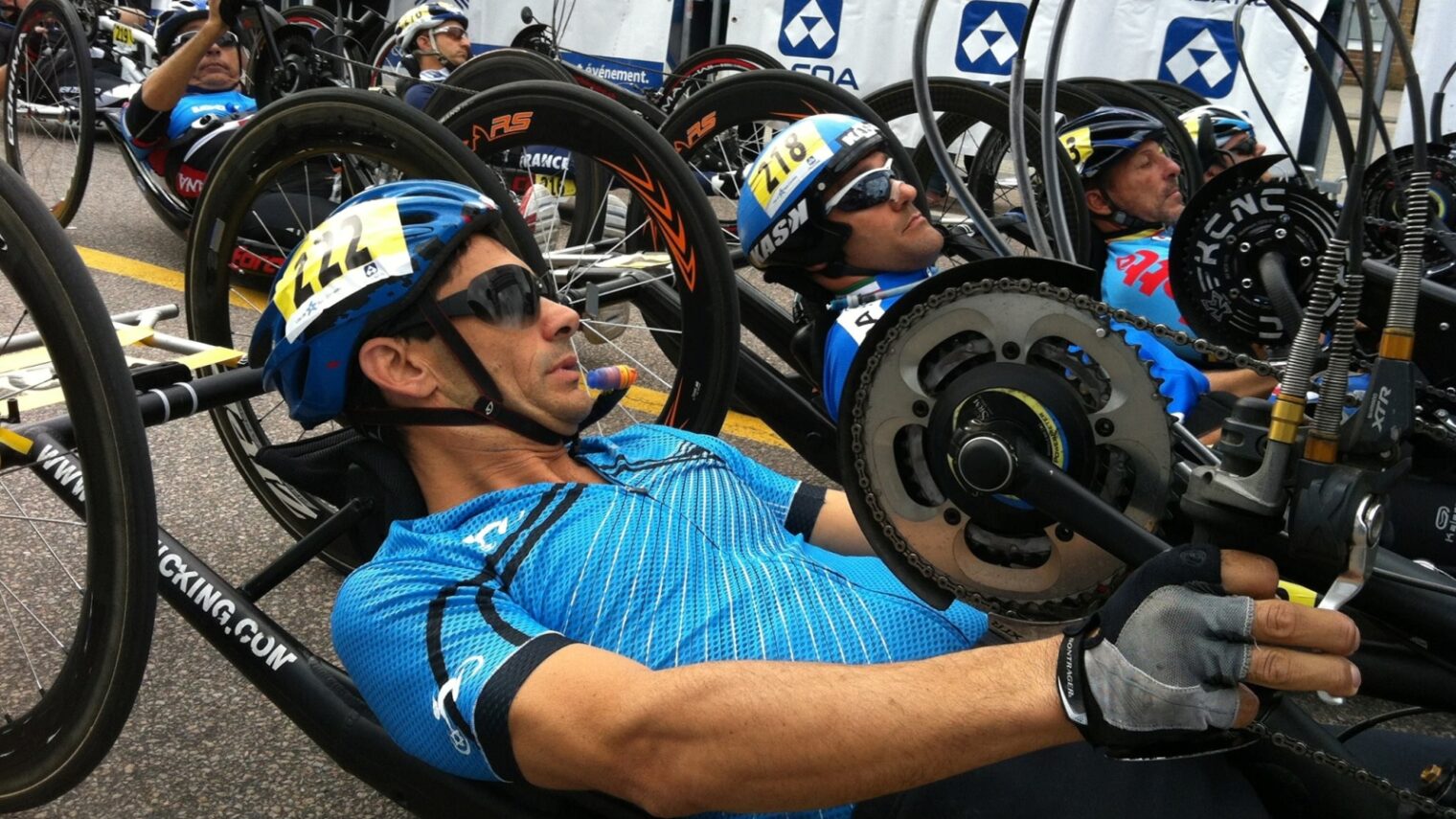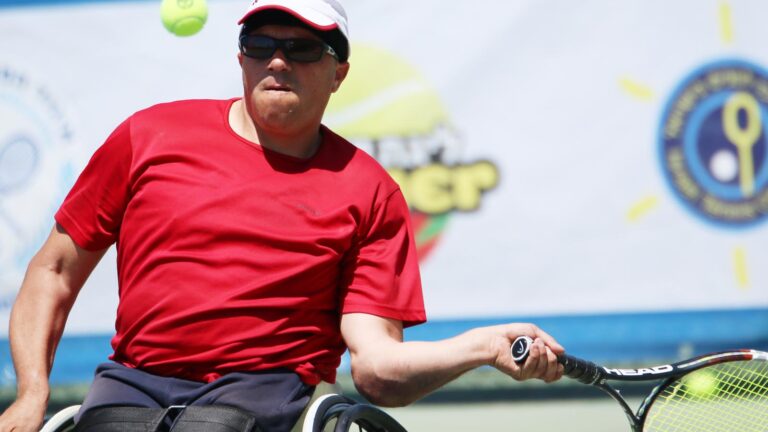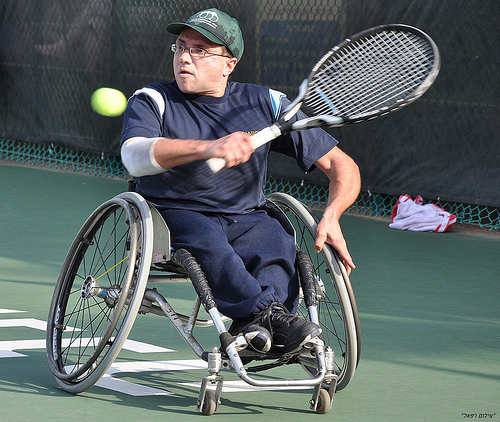Two-time quad tennis Paralympic medalist Shraga Weinberg will bear the Israeli flag aloft as he leads a delegation of 30 physically and visually disabled athletes into the 2016 Paralympic Games in Rio.
Running from September 7 to 18, the Paralympics will include 4,350 athletes from 178 countries competing in 23 disciplines. Israel’s delegation of 15 men and 15 women will compete in 11 categories.

“For half the athletes in this delegation it’s their first Paralympics,” says Dr. Ron Bolotin, professional manager of the Israel Paralympic Committee and the Israel Sports Association for the Disabled in Tel Aviv.
This will be Bolotin’s 10th Paralympic experience. He participated in swimming as a competitor and coach six times from 1980 to 2000, winning 11 medals, and headed Israel’s Paralympic delegation to Athens (2004), Beijing (2008) and London (2012).
The 2016 team is larger than the 2012 delegation of 25, mostly because of the addition of Israel’s first-ever women’s goalball team. A male goalball team competed for the blue-and-white in Barcelona in 1992.
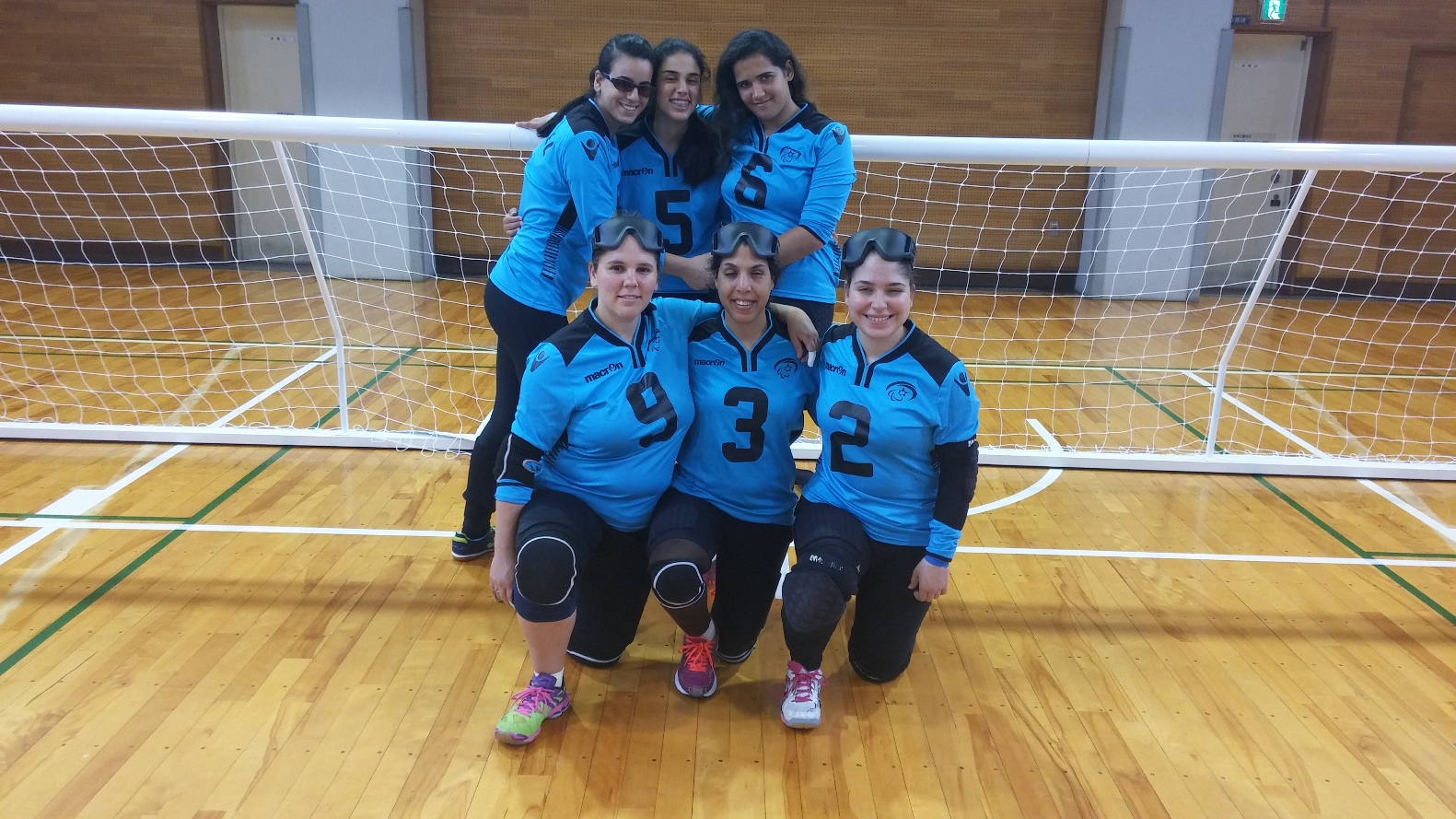
“The captain is a very special young Muslim woman from Umm al-Fahm, and the team has a great future,” Bolotin tells ISRAEL21c. “They won fourth place in the European championship and first in the World Games.”
While all other Paralympic sports were adapted for people with disabilities, goalball was developed as a rehab activity for the blind in Europe after World War II. Participants compete in teams of three, throwing a bell-embedded ball toward the opponents’ goal.
lham Mahamid, the 25-year-old captain, has been playing goal ball for about 10 years and has been a member of the team from its inception. An undergraduate student of education and theater, her visual impairment is due to a genetic disease.
Of the other teammates — Lihi Ben David, 20; Gal Hamrani, 23; Roni Ohayon, 16; Sivan Abrababya, 25; and Yarden Adika, 15 – only Abrababya is blind as the result of injury; she was wounded in her eyes during her military service.
Likely medalists
Asked to predict which Paralympic athletes are most likely to medal in Rio, Bolotin named Moran Samuel, Paralympic rowing world champion in 2015; swimmer Inbal Pezaro, who won three medals in London; Kobi Leon in handcycling; Doron Shaziri, who medaled in shooting at six previous Paralympics; and tennis doubles duo Itay Erenlib and Shraga Weinberg.
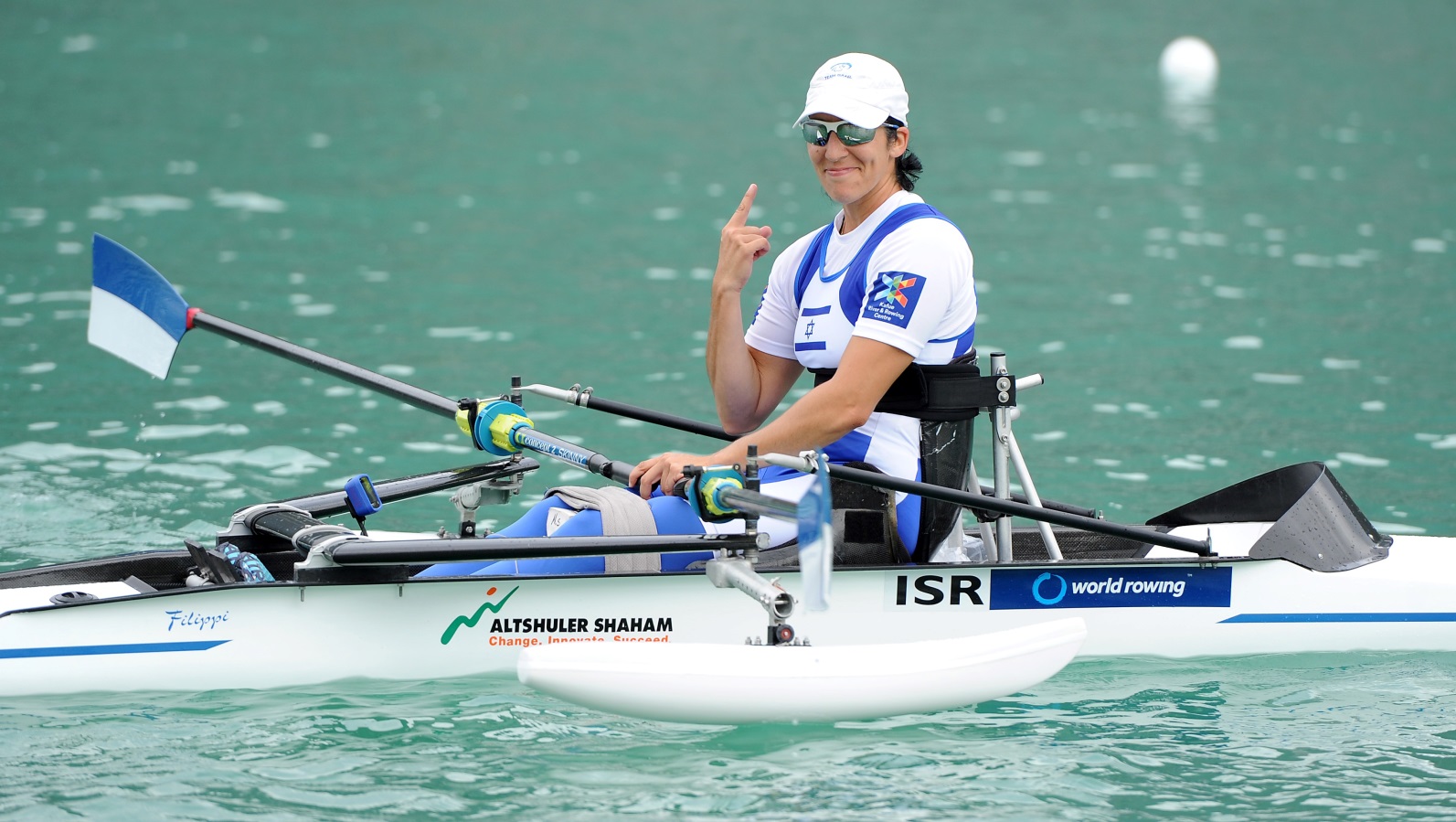
This will be the fourth Paralympics for Weinberg, 50, and Pezaro, 29. Both have won medals in past Paralympics Games but never a gold.
Israel has won 380 medals since the first Paralympics Games in Rome in 1960, including 124 gold medals. At the 2012 London Games, the team came home with one gold, two silver and five bronze medals. In contrast, Israeli Olympic athletes have scored just nine medals since 1952, and came home empty-handed in 2012.
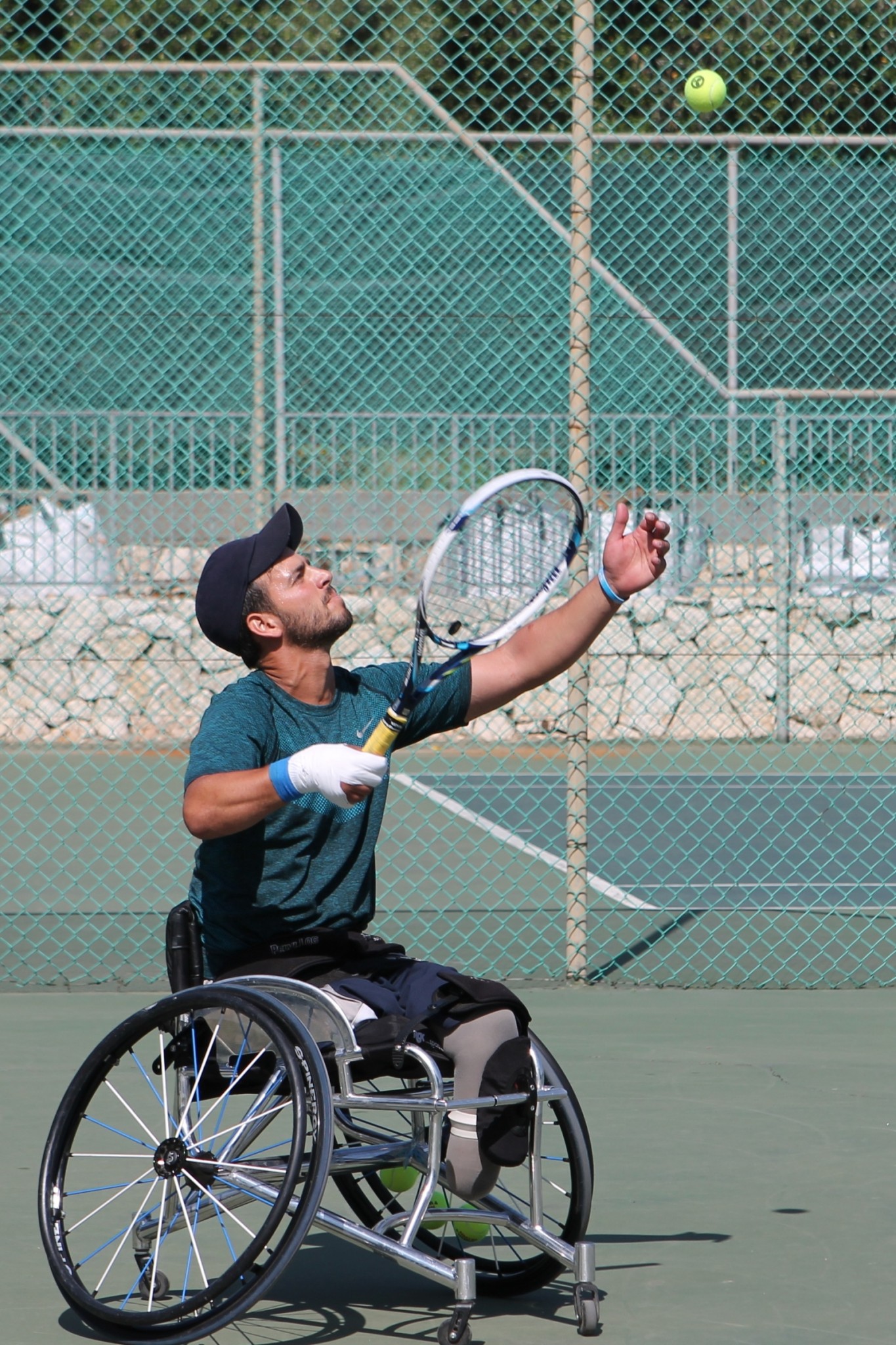
Bolotin says there are several reasons for the discrepancy.
“I think the main reason is that when the Paralympic movement was in its infancy we were one of the pioneer nations and therefore had an advantage. Now the level is getting closer to Olympic and it’s getting tougher every time as Paralympic sports become more elite and competitive and countries invest more money in them,” says Bolotin. “We probably won’t match our eight medals in London, yet we still hope to win some.”
While Israel’s 47-member Olympic delegation is the largest ever, the Paralympic delegation is about half the size of its largest in history, which took 69 medals at the 1976 Toronto Games.
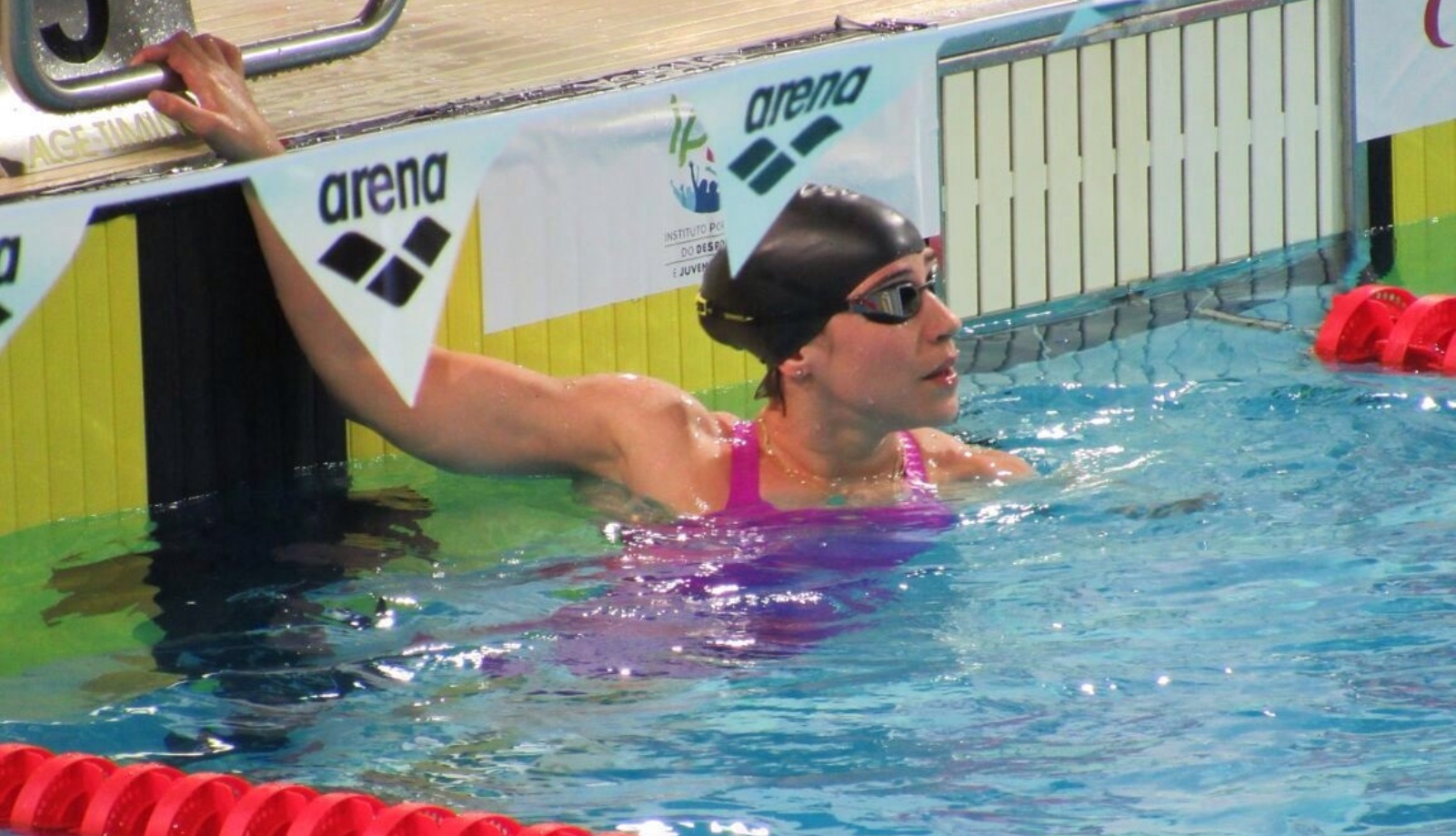
“The final delegation is decided by the criteria of the International Olympic and Paralympic committees and the Israeli Olympic and Paralympic committees, and this time only 30 athletes made the criteria,” says Bolotin, noting that the Olympic Games have more than twice the number of competitors overall.
Four years ago, Israel’s Culture and Sport Ministry launched an initiative to identify and promote more potential Olympic and Paralympic athletes in childhood. This is significant because world-class athletes generally begin training in childhood, but most of Israel’s Paralympic competitors entered athletics only after becoming disabled in their teens or 20s.
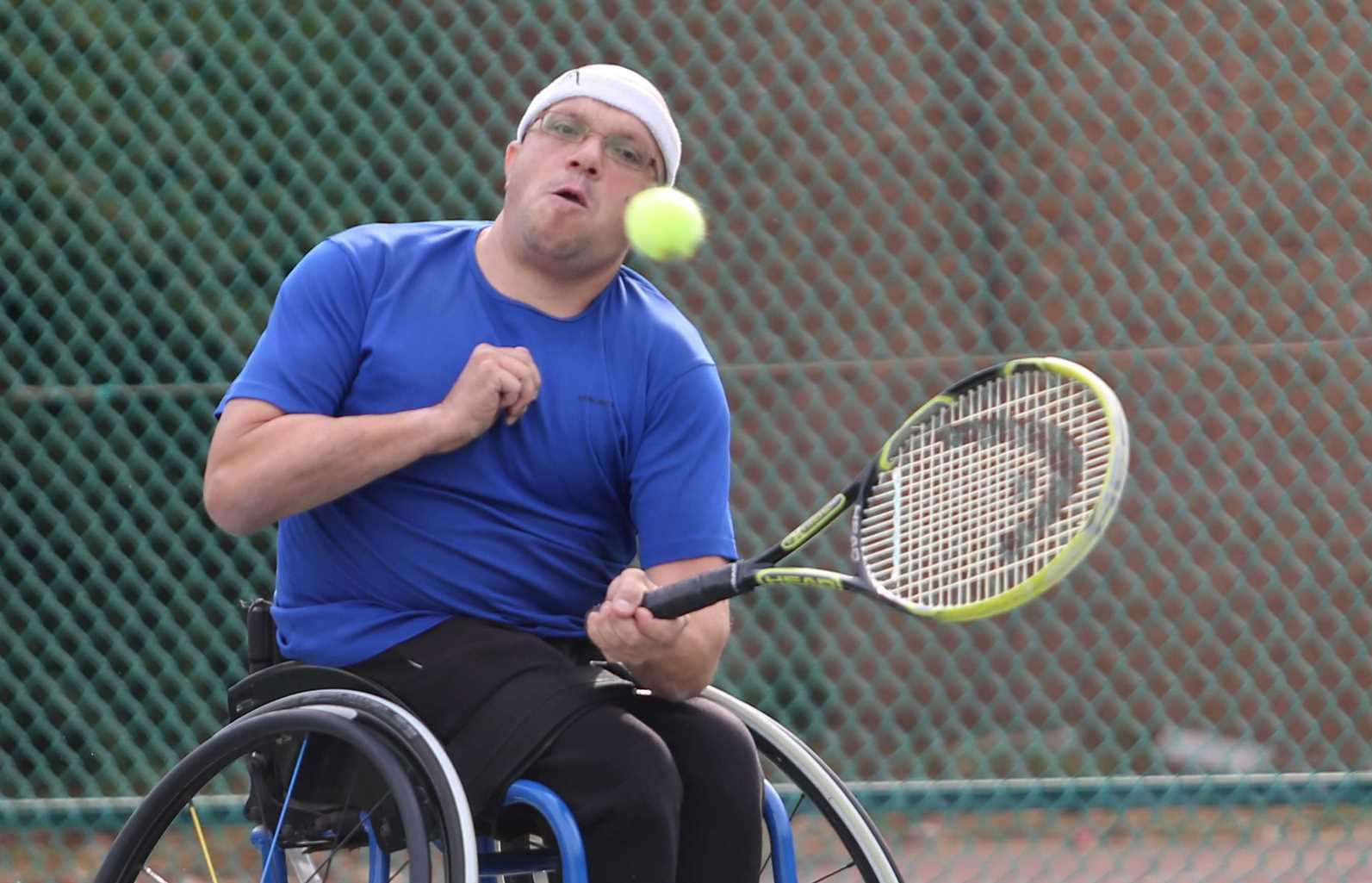
“The initiative is starting in Jerusalem, Ashdod, Beersheva and in the north, including Arab and Bedouin towns. We’ll see the outcome perhaps in 2024 as we have 250 new children starting to train in Paralympic sports,” says Bolotin, who is unusual in that he was already a competitive swimmer before losing his leg to a landmine in 1975. Another exception is Weinberg, born with a rare bone disorder.
Paralympic athletes train at the IDF Disabled Veterans Organization’s Beit Halochem centers in Tel Aviv, Haifa and Jerusalem; and in the Haifa and Ramat Gan sports centers run by ILAN – Israeli Association for Children with Disabilities.
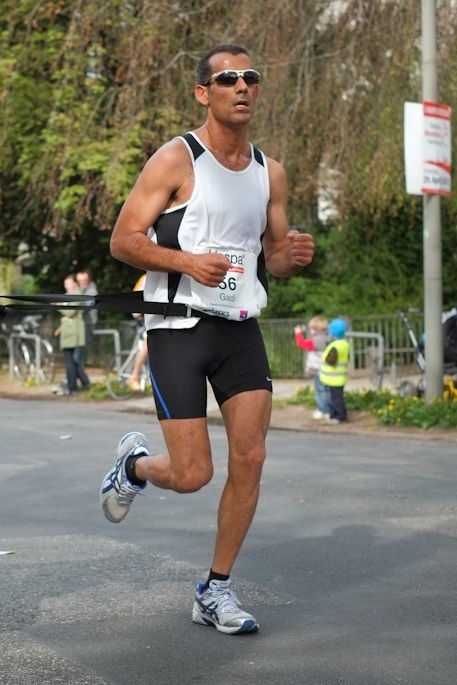
Here are the Israeli athletes going to the 2016 Rio Paralympics Games. Repeat Paralympians are in italics. The delegation will also include 25 coaches, escorts and medical personnel.
Bocce: Nadav Levi
Cycling: Kobi Leon
Goalball: Iham Mahamid (captain), Lihi Ben David, Gal Hamrani, Roni Ohayon, Sivan Abrababya, Yarden Adika
Kayaking: Pascale Berkowitz
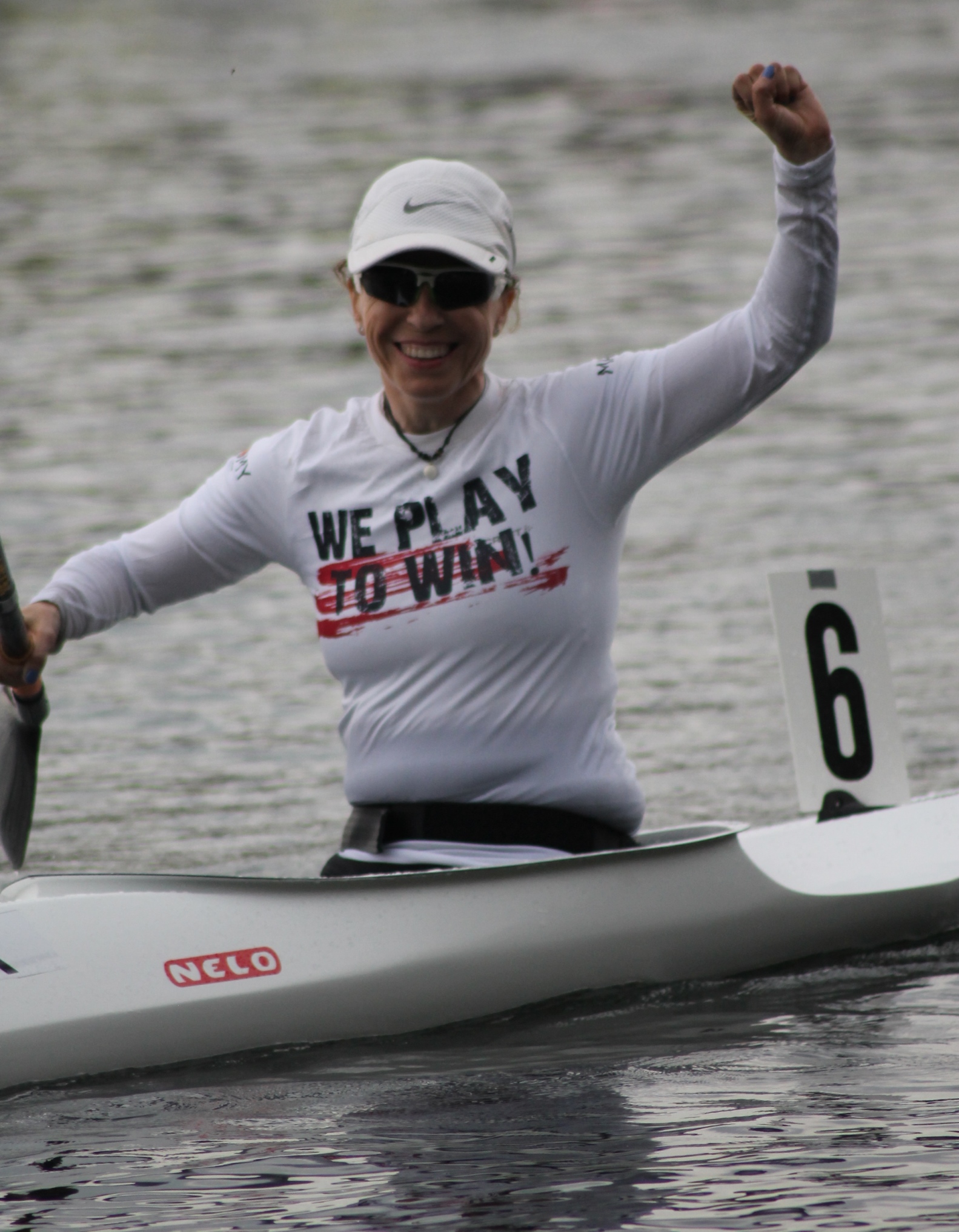
Rowing: Moran Samuel (single scull), Yulia Chernoy and Reuven Magnagy (double scull)
Running: Gadi Yarkoni (marathon)
Sailing: Dror Cohen, Arnon Efrati, Shimon Ben Yakov (Sonar); Hagar Zehavi, Moshe Zehavi (Skud)
Shooting: Doron Shaziri
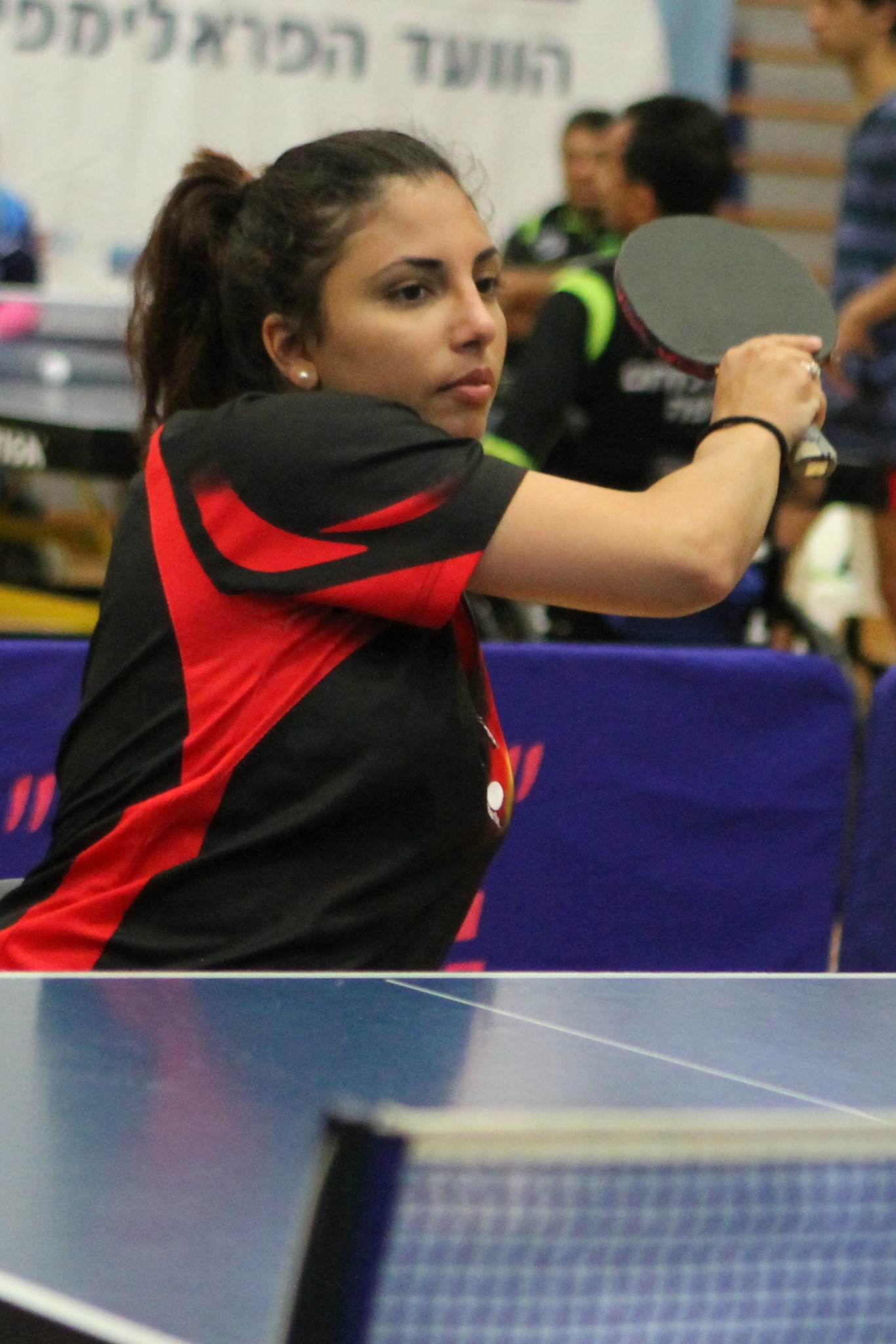
Swimming: Inbal Pezaro, Erel Halevi, Yulia Gordiychuk, Iyad Shalabi, Yoav Valinsky
Tennis: Shraga Weinberg and Itay Erenlib in the high disability category (quad) and Adam Berdichevsky in the lower disability category
Wheelchair table tennis: Caroline Tabib, Shay Siada, Hagit Brill




